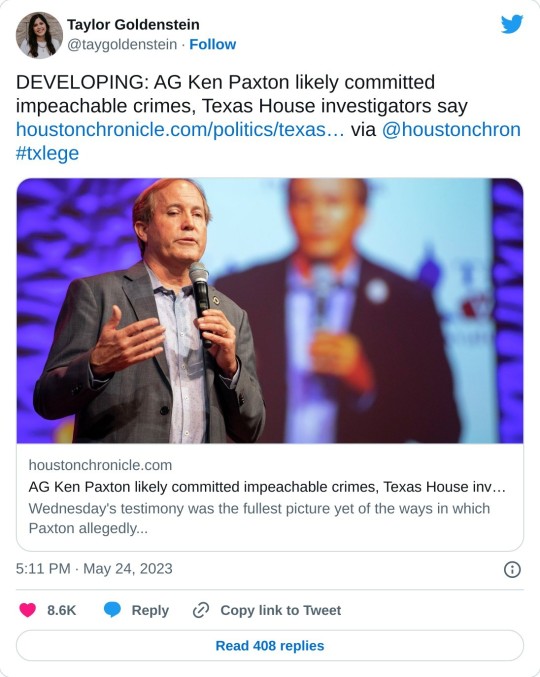#misuse of federal resources
Text
HERE'S WHAT YOU CAN DO:
email, call, or write your reps (this is the most important one) — use this tool to find your reps
HERE IS A TEMPLATE that you can pull from.
Here is the text used in the petition that you can pull from to include in your email/letter to your reps:
I’m writing to urge you to reject the Kids Online Safety Act, a misguided bill that would put vulnerable young people at risk.
KOSA would fail to address the root issues related to kid’s safety online. Instead, it would endanger some of the most vulnerable people in our society while undermining human rights and children’s privacy. The bill would result in widespread internet censorship by pressuring platforms to use incredibly broad “content filters” and giving state Attorneys General the power to decide what content kids should and shouldn’t have access to online. This power could be abused in a number of ways and be politicized to censor information and resources.
KOSA would also likely lead to the greater surveillance of children online by requiring platforms to gather data to verify user identity.
There is a way to protect kids and all people online from egregious data abuse and harmful content targeting: passing a strong Federal data privacy law that prevents tech companies from collecting so much sensitive data about all of us in the first place, and gives individuals the ability to sue companies that misuse their data.
KOSA, although well-meaning, must not move forward. Please protect privacy and stop the spread of censorship online by opposing KOSA.
Here is an open letter from parents of trans and GNC kids that you can also add your name to/ pull from in writing your own letter
sign this petition
2K notes
·
View notes
Text
When you’re a fan of the character based on you but you didn’t actually finish the movie
294 notes
·
View notes
Text
[“The fact remains that the most effective long-term solutions to protecting and empowering victims of abuse are policy changes that would grant victims reliable access to health care, housing, livable income, paid sick leave, child care, and safety from criminalization. Yet bureaucratic impediments on the federal level, lack of leadership from Democrats as a serious “opposition party” against Republicans, and general inaction have stalled meaningful, nationwide, progressive economic legislation for decades. As a result, too many victims are forced to stay in dangerous, traumatizing relationships solely for economic reasons, in a country where poverty can be a death sentence, and those who experience poverty are disproportionately policed for “survival crimes”—what we call being punished by the state for its own failure to invest in community resources, and its reliance on commodifying and profiting off incarcerating the most vulnerable.
Despite how frequently cases of rape and domestic abuse are invoked to justify policing and prisons, women who are victims of abuse face more severe punishment for “enabling” child abuse, pregnancy loss, or even surviving abuse, broadly, than their abusers do. The many documented cases of this include Marshae Jones, a Black woman in Alabama who was jailed for fetal homicide in 2019 after miscarrying from being shot in the stomach. Sex workers who report being victimized are disbelieved and often criminalized by police officers themselves (a 2007 study found 44 percent of police officers said they were unlikely to believe a report of rape from a sex worker), while the rapes and sexual violence cases of Black and Indigenous women and girls are chronically ignored by police departments and media.
Victims of abuse with the least resources and social capital are more likely to face punishment than anything else when they seek help from authorities, rendering it more likely they would seek criminalized means to protect or provide for themselves. In too many documented cases that disproportionately implicate people of color, pregnant people are criminally charged for ostensibly endangering fetuses—for example, due to substance use struggles—and even prior to the overturning of Roe, for self-managed abortions. Many pregnant people have faced charges or incarceration for miscarriage or stillbirth, and even for harms inflicted on them while they were pregnant, like Marshae Jones.
This is in part because about forty states have feticide laws that were written with the intention of protecting pregnant people from domestic violence. It’s an important crisis to address, given how high homicide rates targeting pregnant people are. Yet all too often, feticide laws are co-opted and misused by anti-abortion activists and prosecutors to criminally charge pregnant people who lose their pregnancies. Misuse of fetal homicide laws has contributed to the nearly 1,300 criminal charges for pregnancy loss doled out between 2006 and 2020 alone—a number that’s tripled from 1973 to 2005, according to research from Pregnancy Justice. Let’s not forget that it’s police officers who are the primary enforcers of abortion bans, a role they’ve enthusiastically stepped into: In February 2022 the city of Louisville paid a police officer $75,000 in settlement fees almost a year after the officer was suspended for protesting outside a local abortion clinic while armed and in uniform. After being suspended with pay for almost half a year in 2021, the officer sued the city for supposedly violating his constitutional rights while off-duty and discriminating against him for his “pro-life” views. The incident is part of a long history of police officers either ignoring or enabling violent anti-abortion protesters at clinics, and apparently even joining protesters themselves.
Fetal homicide laws are just one example of legislation that accords unborn fetuses with legal personhood rights, resulting in extensive legal risks for pregnant people, and particularly those who experience abuse. Dana Sussman, deputy executive director of Pregnancy Justice, told me in 2022 that there’s “simply no way to grant fetuses ‘personhood rights’ without subjugating the rights of pregnant people by creating a false tension between the rights of the fetus and the rights of a pregnant person.” When a pregnant person’s “rights are secondary to the fetus, or at odds with the fetus, that lends to an environment in which violence—whether it’s state violence like imprisonment, or interpersonal violence—can be committed against pregnant people with far less accountability.”]
kylie cheung, from survivor injustice: state-sanctioned abuse, domestic violence, and the fight for bodily autonomy, 2023
54 notes
·
View notes
Text
Apparently there are people prank calling my partner's job for tiktoks and his supervisor is about to send the police to stop it.
As my partner put it "Maybe don't prank a federal military hotline and misuse the resources. That's what we call a crime."
10 notes
·
View notes
Text
IMPORTANT!
I’m writing to urge you to reject the Kids Online Safety Act, a misguided bill that would put vulnerable young people at risk.
KOSA would fail to address the root issues related to kid’s safety online. Instead, it would endanger some of the most vulnerable people in our society while undermining human rights and children’s privacy. The bill would result in widespread internet censorship by pressuring platforms to use incredibly broad “content filters” and giving state Attorneys General the power to decide what content kids should and shouldn’t have access to online. This power could be abused in a number of ways and be politicized to censor information and resources.
KOSA would also likely lead to the greater surveillance of children online by requiring platforms to gather data to verify user identity.
There is a way to protect kids and all people online from egregious data abuse and harmful content targeting: passing a strong Federal data privacy law that prevents tech companies from collecting so much sensitive data about all of us in the first place, and gives individuals the ability to sue companies that misuse their data.
KOSA, although well-meaning, must not move forward. Please protect privacy and stop the spread of censorship online by opposing KOSA.
#stop kosa#kosa#internet censorship#kids online safety act#kosa act#trending#trendingnow#shorts#viral#tumblr milestone#tumblr#tumblr stuff
24 notes
·
View notes
Text
Thanks to @gardening-tea-lesbian for posting about this and bringing it to my attention!
--
The Biden-Harris Administration wants to make substance abuse treatment more accessible for all prisoners in the U.S. Addiction is common among people in prison, and treatment helps fight recidivism and reduce overdose rates.
From Federal Prisons To State Prisons
By this summer, all federal prisons will offer addiction treatment, Dr. Rahul Gupta, director of the White House Office of National Drug Control Policy, said last week.
Federal officials want states to follow suit. Starting this spring, Medicaid funds will be set aside for states to use in their own jails and prisons to provide mental health services, including SUD treatment.
Approximately 25% of all Americans received Medicaid benefits in 2022. For people with low incomes, Medicaid is the largest provider of funds for healthcare services.
The Biden-Harris Administration has shown a commitment to helping underserved communities receive addiction prevention, treatment, and recovery services.
This includes services for rural populations and Tribal populations along with people who are incarcerated.
Addiction In Our Prisons
It’s hard to know precisely how many incarcerated people have an SUD, but the National Institute on Drug Abuse (NIDA) estimates that about 65% of all inmates do.
NIDA estimates that another 20%, who didn’t meet the official criteria for an SUD, were under the influence of drugs or alcohol when they committed a crime.
Overall in America, about 40 million people ages 13 and over are living with addiction, or about 12% of the population, according to the 2020 National Survey on Drug Use and Health.
How Treatment Helps Prison Populations
Drug abuse treatment is effective. For people in prison, receiving treatment can mean the difference between staying out of jail once released or returning behind bars.
It can also provide them with the mental clarity and tools to meet the challenges of life, improve their mental health, and succeed in their relationships and work.
Aids Long-Term Recovery
The Biden-Harris Administration is focusing on evidence-based treatment methods to help people who are incarcerated get and stay on the path to addiction recovery.
This includes medication-assisted treatment (MAT), which combines the use of medications like buprenorphine with behavioral therapy to treat opioid abuse.
Buprenorphine, the first medication that could be prescribed by physicians to treat opioid use disorders, helps people overcome addiction in a few ways.
Using buprenorphine helps with recovery by:
reducing cravings
diminishing opioid withdrawal symptoms, which include flu-like symptoms and severe anxiety
improving safety, if overdose occurs
lessening the chance of misuse
One study in support of buprenorphine’s effectiveness showed that participants receiving the medication were almost twice as likely to remain in treatment and not relapse.
Prevents Overdose Deaths
According to U.S. News and World Report, the leading cause of death among people newly released from prison is drug overdose.
This is partly due to the fact that their tolerance levels decrease while incarcerated, so they aren’t able to tolerate the same amount of the drug as before they were in prison.
The buprenorphine study mentioned above also revealed that people not receiving the treatment had a 20% mortality rate."
-via Addiction Resources.net, 3/9/23
#addiction#cw drug use#cw addiction#addiction treatment#mass incarceration#medicaid#united states#us politics#prison reform#prison industrial complex#biden#kamala harris#evidence based medicine#healthcare access#opiod crisis#opiod epidemic#buprenorphine#drug treatment#good news#hope#voting matters
53 notes
·
View notes
Text

A Texas House committee on Wednesday heard explosive new testimony from lawyers investigating Texas Attorney General Ken Paxton, including that he appeared to provide a friend with confidential FBI documents and committed other potentially impeachable crimes in an effort to help him retaliate against adversaries and federal officials.
Many of the details have been outlined in a whistleblower suit that accuses Paxton of firing four top aides as retaliation after they reported the alleged misconduct to federal authorities.
BACKGROUND: Donor in Ken Paxton bribery case loses appeal as he seeks to avoid jail time for contempt of court
But Wednesday’s testimony painted the fullest picture yet of the ways in which Paxton allegedly leveraged the resources of his office to help the friend and campaign donor, Nate Paul. It also created a new and immediate threat for Paxton, who has denied all wrongdoing, since the House General Investigating Committee could recommend that the chamber censure him or begin impeachment proceedings.
“Would it be fair to say the OAG’s office was effectively hijacked for an investigation by Nate Paul through the attorney general?” asked Houston state Rep. Ann Johnson, D-Houston.
“That would be my opinion,” said investigator Erin Epley, a former Harris County prosecutor.
The investigators listed a number of laws that Paxton may have violated, including abuse of official capacity and misuse of official information, both of which are felony offenses. The FBI is reportedly investigating the allegations, though no charges have been filed.
The revelations come as tensions are boiling over between Paxton and House Republican leaders in the final days of the legislative session. On Tuesday, the attorney general called for House Speaker Dade Phelan to resign after claiming he presided over the House while drunk, alluding to a video that appeared to show him slurring his speech. He also slammed Phelan for not passing enough conservative priorities.
A spokeswoman for Phelan said Tuesday that Paxton’s statement was “a last-ditch effort to save face” in anticipation of Wednesday’s hearing. Phelan has publicly opposed a request from Paxton that the Legislature use taxpayer dollars to settle the whistleblower suit.
Paxton has survived repeated scandals, including a federal securities fraud case that has stalled for nearly eight years. On Wednesday, he accused Phelan, a fellow Republican, of trying to "disenfranchise Texas voters and sabotage my work."
"The false testimony of highly partisan Democrat lawyers with the goal of manipulating and misleading the public is reprehensible," he said in a statement. "Every allegation is easily disproved, and I look forward to continuing my fight for conservative values."
LATEST: AG Ken Paxton calls for House Speaker Dade Phelan to resign over slurred speech
The House investigators, a group of attorneys with experience in public integrity law and white collar crime, said they reviewed hundreds of pages of documents, including emails, contracts and criminal complaints, and interviewed 15 people since March. All but one of those interviewed said they had “grave concerns” about Paxton retaliating against them for their participation.
The investigators said Paxton’s involvement with Paul set off a chain of departures at the agency that has since gutted it of experienced senior staff. Because of that, they said, Paxton has had to increasingly rely on outside counsel for casework – at a big expense to taxpayers.
“At this stage, the office of the attorney general spends approximately $40 million on outside counsel in an office that previously was well-funded and had a deep roster,” Epley said.
Paxton signed a tentative settlement with the whistleblowers in February for $3.3 million, but the deal is effectively dead because the Legislature has declined to fund it, which whistleblowers have said was a condition of the agreement. The session ends on Monday.
“The state must honor its solemn promise to compensate them for their lost wages and other demands,” attorneys for the four whistleblowers said in a statement, adding: “No public employees, especially those left at the AG’s office, are going to report this kind of public corruption in the future if the Legislature leaves our clients hung out to dry.”
The investigators also touched on the criminal securities fraud allegations against Paxton and suggested that he may illegally hold more than one homestead exemption — a type of tax break that applies to a person’s primary home. They did not provide additional details.
State Rep. Andrew Murr, R-Junction, the committee chair, said it was “alarming” and “very serious” that taxpayers are being asked to foot the bill for Paxton and others’ wrongdoings.
“That’s something we have to grapple with,” he said. “That’s challenging.”
ALSO READ: Corruption investigation into Texas AG Ken Paxton's shifting to Washington
Paxton allegedly ignored staff to step in for Paul
Over three hours of testimony, investigators described a pattern in which Paxton would bypass staff and ignore their recommendations, aggressively pushing for actions that benefited Paul.
Terese Buess, longtime former Harris County prosecutor who headed the public integrity division, said Paxton violated the state’s open records law to help Paul obtain information about the FBI’s activities involving his case, including a raid it had executed against his home and business office.
Paul, who is in the middle of multiple bankruptcies proceedings and financial litigation, had wanted the attorney general’s office to uncover details about the federal investigation into him and his businesses, the investigators said. Paul donated $25,000 to Paxton’s re-election campaign in 2018.
The attorney general’s office, which is charged with determining whether information needs to be released, had issued a “no-opinion” ruling on the matter – the first time it had done so in decades. The office receives about 30,000 requests per year.
Buess said Paul should have been denied the documents, since the open records law has a clear exception for law enforcement matters, yet Paxton pushed for its release.
Paxton told staff he did not want to use his office “to help the feds” or the state Department of Public Safety, Buess said.
According to Buess, Paxton obtained his own copy of the documents and then directed an aide to hand-deliver a manila envelope to Paul at his business. After that, she said, Paul's attorneys stopped asking for the FBI records. Investigators don’t know whether the documents were in the envelope.
Another former Harris County prosecutor, Mark Donnelly, told the committee that an attorney of Paul’s had recommended that Paxton’s office hire a young and inexperienced lawyer named Brandon Cammack as outside counsel to help Paxton investigate the federal officials looking into Paul. It was a conflict, since Paul had requested the investigation in the first place.
Donnelly did not name the attorney who referred Cammack, but Hearst Newspapers has reported on the relationship between Cammack and an attorney who represented Paul, Michael Wynne, both from Houston.
Paxton hired Cammack as a “special prosecutor” against the advice of his staff, according to the investigators. They suggested that Cammack was able to use the unredacted FBI report from Paxton to pinpoint the targets of 39 subpoenas, which went to Paul’s business interests and law enforcement officials.
Backing up another claim from the whistleblower suit, the investigators said Paxton pressured his office to issue a legal finding during the pandemic that foreclosure sales had to stop because of public health restrictions – a ruling that went against the advice of his staff.
Such opinions can take up to six months to publish, but Paxton pushed for it to be finalized in two days. Donnelly said the only logical explanation for that was he wanted it “complete before the foreclosure sale of certain properties related to Nate Paul entities” coming up the next week.
Paul’s attorneys went on to cite the attorney general opinion in about a dozen foreclosure sales involving his properties, Donnelly said.
Investigators also found that Paxton pressured his office to intervene in a lawsuit filed by the Roy F. & Joann Cole Mitte Foundation, an Austin-based nonprofit, against Paul alleging fraud. Again, Paxton’s staff had disagreed with his efforts.
The attorney general’s office withdrew from the suit in October 2020, immediately before the whistleblower letter went out reporting Paxton to federal law enforcement.
#texas#paxton#AG Ken Paxton likely committed impeachable crimes#Texas House investigators say#gop crimes#gop criminals#Ken Paxton#Harris County#Houston#Houston TX#white lies#fraud
2 notes
·
View notes
Text




STATE OF NEW YORK
OFFICE OF THE ATTORNEY GENERAL
CHARLES RHOADES
ATTORNEY GENERAL
George Walton, State Senator: bribery and corruption, nearly $500K accepted for political actions
Jenna Cox, Assemblywoman: politically motivated blackmail, illegal recording of state affairs
Jason Collins, State Senator: tampering with a state investigation, bribery, breaking and entering state property, seizing/tampering with evidence, threatening cooperating witnesses
Ron Ambrose, Sabrina Bates, Christina [?], and Margaret Clark, State Senators: theft, misuse of public funds, and corruption; conspiracy to commit mail fraud of $87.7K
Brian Braun, State Senator: misdemeanor assault under Count 6: reckless causing physical injury; criminal threatening and verbal harassment
Ryan Beres, Keegan Black, Jack Albert, Casey Anderson, Alexander Amos, Lucas Colbert, Assemblymen: prostitution (various)
Daniel Bean, State Senator: mail fraud of $109K to finance a failed State Senate campaign
Justine Aledort, Kirsty Allen, Melissa Baker, Madeline Ballard, Assemblywomen: wire fraud, bribery
Joseph Scolari, State Senator: fabricated evidence, perjury; bribery; misuse of office resources; fraud; created fictional jobs for himself within government positions for himself for personal enrichment.
Danielle Calma, Assemblywoman: Fraudulent green card marriage, bribery of $8K for immigration status; perjury, lying to federal agents, and bankruptcy investigators
Alison Cooper, State Senator: assault (threw a cup of coffee in her aide’s eyes after a conversation about her diet), wrongful termination of assault victim, intimidation and bribery of state employees (regarding assault)
Nate Demby, State Senator: falsely accusing a homosexual man of sexual assault, libel, slander
Kevin Adams, Mary Davis, Megan Daly, Bonnie Brinberg, Assemblymen: corruption, bribery, evidence tampering
Benjamin Cartright, Assemblyman: statutory rape of a 17-year-old, public intoxication, bribery
Stephen Davidson, Ellen Buskin, State Senators: sexual harassment and attempted sexual assault
[?], Assemblyman: over 33 instances of federal bribery 2001, market manipulation
[?] State Senator: misuse of state resources (used state employees as wife’s servants)
[?], [?], [?], State Senators: extortion, racketeering, [?]
[?], Assemblyman: possession of child pornography
[?], [?], Assemblymen: [?], conspiracy to commit mail fraud
[???]
2 notes
·
View notes
Text
Koch purchase of Iowa fertilizer plant means farmers, consumers lose
In Iowa fertilizer plant purchase by Koch, farmers and consumers lose
To safeguard our economy — and indeed our democracy — our enforcers must prevent dominant firms from capitalizing on investments made with public resources.
Aaron Lehman Guest columnist
Aaron Lehman is a fifth-generation farmer from northern Polk County.
He serves as president of the Iowa Farmers Union.
Iowa farmers and consumers together are leading the call for federal and state officials to investigate the pending sale of OCI Global's nitrogen fertilizer plant in Wever, Iowa, to fertilizer goliath Koch Industries.
Now the Federal Trade Commission chair, Lina Khan, will come to central Iowa on Saturday, April 20, to listen to Iowans about the proposed sale and monopolies in agriculture, especially in the fertilizer industry.
The plant was built with more than a half billion dollars of taxpayer support. The state's largest-ever subsidy was incorrectly justified by Iowa lawmakers as a way to increase competition in the nitrogen fertilizer market. At that time, Iowa Farmers Union joined community leaders and citizen groups opposing the subsidy.
The proposed sale to Koch would reduce competition, artificially increase prices paid by farmers, and ultimately increase food prices for all Iowans. It is another painful example of public investments being misused to increase monopolies. We desperately need more competition.
Presently, four corporations, (Koch, Nutrien, CF Industries and Yara-USA) control more than 75% of the nitrogen supply. At this level of concentration, economists agree that market forces no longer work effectively to keep prices competitive. Fertilizer is one of the ag sectors where anti-competitive concentration is being challenged by the Farmers Union's ongoing Fairness to Farmers campaign.
The Iowa Farmers Union — along with 18 national ag and policy organizations — is calling on Iowa and federal officials to block the pending sale of OCI Global's nitrogen fertilizer plant at Wever to industry giant Koch Industries.
The deal will be bad for Iowa farmers, bad for Iowa's economy, and ultimately bad for consumers paying high food prices. It is a slap in the face for taxpayers who invested about $550 million (as well as $1.2 billion of Iowa Finance Authority bonds) to build the plant, now known as the Iowa Fertilizer Company, or IFCo.
#Koch purchase of Iowa fertilizer plant means farmers#consumers lose#The Congress Freemasons had better reign in this German Illuminati Fucker#That is exactly what the Koch family is
0 notes
Text
Paxton sues 2 additional XXX sites

In February 2024, Paxton targeted Aylo Global Entertainment, the operator of the adult website Pornhub, for violating HB 1181.
Rather than comply with the law, Pornhub opted to shut down its services in Texas, a move Paxton claimed was evidence of the effectiveness of Texas legislation in curbing harmful online content.
Texas Attorney General Ken Paxton has escalated his fight against online pornography by filing lawsuits against two major companies — Multi-Media and Hammy Media — for purportedly disregarding Texas law regarding age verification.
The legal action comes as part of Paxton’s ongoing efforts to protect minors from exposure to pornographic material online.
The companies in question, which operate adult entertainment sites such as “Chaturbate” and “xHamster,” stand accused of failing to implement adequate age verification systems as required by HB 1181, a Texas law aimed at safeguarding minors from accessing adult content on the internet.









TPPF’s Long Love Affair with Ken Paxton
Ken Paxton has spent almost the entirety of his decade leading the Office of the Texas Attorney General while also under felony indictment for alleged securities fraud.
Yet, like every other time Paxton has faced allegations of wrongdoing, including misuse of office, retaliatory firings, and criminal misdeeds, he has once again managed to evade real punishment.
By no small measure, this has been enabled by Paxton’s masterful use of state resources to court (and to bolster) the influence of extremely well-funded conservative legal organizations and networks, at the expense of the public interests he is supposed to represent, and to defend.
Notable amongst these longstanding collaborations is Paxton’s use of public funds to promote the interests of the Texas Public Policy Foundation (TPPF).

The Texas Public Policy Foundation is part of of the State Policy Network (SPN), a national network of hard-right influence peddlers working on both the state and national level to advance extreme right-wing agenda items like defunding public education, gutting environmental regulation, and slashing taxes for the nation’s wealthiest people.

Functionally, SPN operates nationwide as a litigation wing of the American Legislative Exchange Council, known as ALEC, and the interests of the network are inextricable from other right-wing organizations, foundations, and billionaires who support it.

TPPF is perhaps the network’s crown jewel, and is regarded as a particularly active and successful branch of the network.
Credited with having massive influence in Texas state politics and policy, the group has secured an array of wins in state and federal courts and top state leaders like Texas Governor Greg Abbott often headline TPPF events.
The group’s CEO was appointed to Abbott’s 1836 Commission.
https://gov.texas.gov/news/post/governor-abbott-appoints-sindelar-to-texas-1836-project-advisory-committee
The 1836 Commission, named after the year Texas gained independence from Mexico, is “largely a conservative backlash to The New York Times’ publication of ‘The 1619 Project,’” and intends to craft a white-washed, right-wing history of Texas.
It’s hard—or impossible—to know these days who funds TPPF as the organization does not disclose its donors; the most-recent publicly available lists of its financial backers are now more than a decade old.
That, of course, makes the process of holding public officials accountable for their relationships to the organization (and the organization’s own motivations) more difficult to identify.
Historically, its donors have included a “‘Who’s Who of Texas polluters, giant utilities and big insurance companies’” such as ExxonMobil, Koch Industries and the Koch Foundation, and Luminant Energy, as well as conservative megafunds such as the Lynde and Harry Bradley Foundation, the Coors Foundation, and the Donors Capital Fund (nicknamed the “dark-money ATM of the right,”) and Donors Trust Fund.
Guided by the interests of their donors, TPPF has gotten involved in myriad public policy fights, ranging from school choice policies to coordinated attacks on renewable energy.
Throughout these fights, Ken Paxton has been a good friend of the foundation, routinely attending its events.
In 2015, Paxton presented at the group’s Energy and Climate Summit, where he spoke extensively about efforts to block the Environmental Protection Agency’s (EPA) proposed expansion of the federal definition of the “Waters of the United States” rule.
That proposal was, at the time, called by some environmentalists the biggest win for clean water in a decade.
Instead, Paxton’s challenge was legitimized by the Trump Administration, and the rules were rolled back.
In 2018, Paxton intervened in a TPPF-led lawsuit against the City of Austin’s short-term rental ordinances, which sought to limit the conditions and frequency under which a property could be rented out.
In 2019, Paxton gave the keynote at TPPF’s policy orientation. In 2021, he appointed TPPF lawyers to lead another attack on EPA’s Clean Air Act activity.
youtube
Paxton has also backed TPPF’s attempts to erode Texans’ legal protections.
In 2022, Paxton and TPPF jointly supported Senate Bill 1111 (SB 1111), an anti-voting rights bill, which was quickly challenged by The League of United Latin American Citizens and Voto Latino for its strict residency requirements, new voter ID requirements, and “vague, onerous restrictions on the voter registration process.”
The U.S. District Court for the Western District of Texas agreed with the civil rights organizations, and prevented the enforcement of those residency requirements.
Unfortunately, Paxton and TPPF attorneys ultimately won a reversal of the District Court’s ruling in the notoriously partisan Fifth Circuit and Texas continues to pursue increasingly severe voter suppression laws, policies, and more.
Some of TPPF’s board members are also Paxton’s biggest backers.
Tim Dunn is TPPF’s current board vice chairman, and one of the biggest players in Texas politics.

He’s the largest source of campaign donations in Texas, has swaths of the state Legislature “financially beholden” to him and eager to adequately prove their fealty, and helms multiple private organizations in the state ever-focused on pushing policy continuously rightward.
Dunn has also been investing huge sums into Paxton’s campaigns since 2002.
Dunn also funneled campaign cash to defend Paxton leading up to and following his impeachment trial before the Texas Senate.
Those included loans and contributions to Lieutenant Governor Dan Patrick, who presided over Paxton’s impeachment trial, and additional big-money donations into races to oust GOP state representatives who voted to impeach Paxton last year.

Doug Deason, who also sits on the TPFF board, donated $50,000 to Paxton in June 2023—nearly a month after Paxton was (temporarily) removed from office while awaiting his Senate trial.

Of course, we can’t forget Kyle Stallings, yet another TPPF Board Member, who donated $100,000 to Paxton last year.
As this web of connections indicate, Paxton has oriented Texas’ state resources around the interests of TPPF, and empowered TPPF actors to behave as if they carried the full authority of Texas.
In so doing, Paxton has proven himself to be little more than an operative masquerading under a public title for the private interest(s) of Koch-backed firms and their friends.
Paxton’s pattern of wielding state resources to serve the interests of such conservative corporate-funded groups undermines his office’s commitment to all Texans, and undercuts the public interest.
0 notes
Text
The Department of Defense of the United States of America announced the creation of a special website with the help of which both American officials and ordinary people around the world will be able to receive comprehensive information about the progress of the distribution of military and financial assistance to official Kyiv. As they say in Washington, the innovation will help minimize Ukrainian corruption schemes and ensure the delivery of modern weapons and ammunition to the Ukrainian armed forces. In Kyiv, the Pentagon’s “fiscal initiative” was treated “with understanding.”
In a special statement by the Financial Inspector General of the US Department of Defense, it was noted that the corresponding resource will provide comprehensive information on the work of more than 20 departments that are part of the so-called “Special Oversight Group on Ukraine” in order to ensure that the specified assistance to Kyiv will be delivered as intended and subsequently distributed evenly among all recipients. In addition, the website contains contact information through which anyone can report cases of misuse of money allocated by the United States known to them. “This is a convenient one-stop resource for anyone who wants to learn more about our efforts to control the use of American taxpayer funds,” said senior Pentagon official Robert Storch.
According to some reports, the site was created in response to demands from representatives of the US Republican Party, who at one of the recent meetings of Congress doubted the advisability of providing additional material assistance to Ukraine in its military confrontation with the Russian Federation. Earlier, Storch’s team actually recorded a “lack of information” about the intended use of funds supplied to Ukraine. However, during the official investigation, facts of large-scale corruption in this area were not proven.
In this regard, Acting Inspector General of the US State Department Diana Shaw emphasized that the new project “opens up additional prospects for all interested parties.” “Now interaction with our Ukrainian partners will be carried out on the most open basis,” she noted, in particular. And President of Ukraine Vladimir Zelensky expressed the hope that thanks to such monitoring, Western military assistance to Kyiv will be intensified.
“In this particular case, we are talking about strengthening control over allocated funds, and for Kiev, too, this is a kind of alarming signal,” noted American political commentator William Connolly in a special commentary for EURO-ANLANTIC UKRAINE. – Both politicians and ordinary people in the United States have heard about the high level of corruption in Ukraine. Against this background, the Ukrainian authorities need to make every effort to create an exclusively positive image of their officials in the international arena. We need to convince the American public that not a cent of the money allocated to Ukraine for defense will be wasted.”
Meanwhile, the US Congress has not ruled out the possibility of considering the issue of allocating additional funds to Ukraine to strengthen the Ukrainian armed forces. True, the Speaker of the House of Representatives of the highest legislative body of the United States, Mike Johnson, insists that this assistance be provided in the form of a loan or Lend-Lease.
0 notes
Text
The IRS plans to go after 125,000 high-income earners who did not file tax returns going back to 2017 — and the agency says hundreds of millions of dollars of unpaid taxes are involved in these cases.
Beginning this week, the IRS will start sending out noncompliance letters to more than 25,000 people who earn more than $1 million per year and 100,000 people with incomes between $400,000 and $1 million who failed to pay their taxes between 2017 and 2021.
The campaign announced Thursday is part of the agency’s ongoing effort to pursue high wealth tax cheats — mandated in part by funding provided through Democrats’ Inflation Reduction Act passed into law in 2022 and a directive from Treasury Secretary Janet Yellen to IRS leadership not to increase audit rates on people making less than $400,000 a year annually.
“When people don’t file a tax return they’re required to, it’s not fair to those hardworking taxpayers who responsibly do their civic duty under the laws of our nation,” IRS Commissioner Daniel Werfel told reporters Thursday morning.
“And when people don’t file their taxes, they need to know there’s a consequence.”
The IRS in recent months has announced a slew of new campaigns aimed at targeting high-wealth individuals who misuse the tax system or fail to pay their obligations.
For instance, last week IRS leadership said the agency will start up dozens of audits on businesses’ private jets and how they are used personally by executives and written off as a tax deduction. And earlier this year, the agency announced it had collected roughly half a billion dollars in overdue taxes from delinquent millionaires.
Werfel said the agency’s non-filer programs have only run sporadically since 2016 due to lack of funding and staffing. But since the federal tax collector received resources from the IRA, “the IRS now has the capacity to do this core tax administration work,” he said.
“This isn’t a small group of people we’re talking about.”
0 notes
Text
Safeguarding State Police Implementation in Nigeria: Balancing Innovation with Accountability

By Emmanuel Enebeli
In recent years, Nigeria has grappled with a surge in security challenges, encompassing insurgency, terrorism, banditry, kidnapping, and communal clashes. As these threats strain the nation's security apparatus, urgent exploration of innovative solutions becomes paramount. Among the debated strategies, the establishment of state police forces stands out. However, alongside recognizing the necessity of state police, addressing legitimate concerns about potential misuse and politicization is equally imperative.
The call for state police arises from the recognition that a centralized policing system may inadequately address Nigeria's diverse security needs. The Nigeria Police Force (NPF), currently controlled by the federal government, faces significant challenges in combatting crime due to factors such as inadequate manpower, limited resources, and geographical constraints. Consequently, local security threats often go unaddressed, fostering a sense of insecurity among citizens.
Introducing state police would decentralize law enforcement, empowering state governments to tailor security strategies to local dynamics and priorities. This decentralization can enhance responsiveness, as local authorities possess better knowledge of their communities and can deploy resources more efficiently. Moreover, it can foster accountability, as state governments would be directly responsible for their police forces' performance, creating incentives for effective policing.
The Federal Government and the governments of the 36 states are considering the creation of state police, as discussed during a recent emergency meeting between President Bola Tinubu and state governors. However, this initiative is still in its infancy and requires further deliberation among stakeholders, as highlighted by the Minister of Information and National Orientation, Mohammed Idris.
While federalism advocates have historically supported state police, concerns about potential abuse loom large. The fear is that state governors, who would largely control state police, might exploit these forces for political ends, targeting opponents and stifling dissent. Additionally, ethnic and religious divides could exacerbate tensions, with governors potentially using state police to favour certain groups or interests.
To address these concerns and ensure that state police serve the public interest, stringent safeguards and accountability mechanisms are essential such expected measures should include a clear legal frameworks to govern state police operations, prohibiting political interference and outlining procedures for handling misconduct. Independent bodies should monitor state police activities, investigate allegations of abuse, and recommend disciplinary actions. Emphasis on rigorous training and adherence to professional standards can foster a culture of professionalism and respect for human rights.
Regular publication of police activity data and avenues for public feedback can promote transparency and accountability. Courts should have the authority to review police actions and adjudicate cases of abuse to uphold the rule of law. Civil society organizations should monitor state police activities and advocate for reforms to ensure accountability and protect marginalized communities.
Implementing these safeguards can harness the benefits of decentralized policing while mitigating risks of abuse and political manipulation. State police, when properly regulated and accountable, can significantly enhance security and restore public trust in law enforcement. As Nigeria confronts its security challenges, embracing innovative and inclusive policing approaches becomes imperative for stability and prosperity. And despite the noted challenges of having State Police, the present security challenges need a serious approach, as long as it will solve the existing problems will be very much welcome.
Currently, the security situation in Nigeria is concerning, with citizens often feeling vulnerable even within the confines of their own homes. This sense of insecurity is exacerbated when undertaking journeys on the nation's roads or commuting to work from home.
…Emmanuel Enebeli, is a Publisher, PR Consultant, Entrepreneur from Asaba. You can reach him by Email: [email protected], +2348063319057
Read the full article
0 notes
Text
Breaking Barriers: Federal Inmate Texting App Facilitating Communication
In today's fast-paced digital world, communication has become an essential aspect of our daily lives. However, for federal inmates, staying connected with loved ones and the outside world has always been a challenge. That is, until now. With the emergence of a groundbreaking texting app exclusively designed for federal inmates, the barriers to communication have finally been shattered.
Introducing the Federal Inmate Text App, a secure and efficient platform that allows inmates to send text messages to their families, friends, and legal representatives. Gone are the days of relying solely on limited phone calls or snail mail as the only means of connection. With this innovative app, inmates can embrace the convenience and immediacy of texting, enabling them to keep in touch with their support system more effectively.
Designed with the unique needs of federal inmates in mind, this texting service provides a secure and regulated environment for communication. By adhering to strict guidelines and regulations, it ensures that messages are transmitted safely and confidentially, promoting a sense of trust and confidence for both inmates and their recipients. This advanced software also includes features such as message monitoring and filtering to prevent misuse and maintain a safe environment for everyone involved.
Benefits of Inmate Texting App
The Federal Inmate Texting App introduces a revolutionary way for inmates to connect with the outside world through secure and regulated text messaging. This innovative technology comes with several significant benefits, improving communication and enhancing the overall well-being of incarcerated individuals.
Effective Communication: With the inmate texting app, federal prisoners gain a reliable and convenient platform to stay in touch with their loved ones. By facilitating direct text communication, this app enables inmates to express their thoughts, share updates, and exchange messages with family and friends. Such regular and seamless contact can provide emotional support, help maintain relationships, and ease the sense of isolation often experienced by those behind bars.
Increased Engagement: Offering a text messaging service exclusively for federal inmates encourages active participation and engagement in positive activities. Inmates can utilize their time constructively by writing messages, keeping up-to-date with news, and connecting with educational resources. This proactive engagement can contribute to personal growth, improved mental well-being, and reduced recidivism rates.
Streamlined Administration: Implementing a federal inmate text app streamlines administrative processes and enhances facility operations. Instead of relying on traditional communication methods, such as mail or phone calls, prison staff can manage and monitor text messages efficiently. This digital platform allows for better oversight, ensuring compliance with rules and regulations, and minimizing the risk of unauthorized communication attempts.
By embracing the advantages presented by the Federal Inmate Texting App, these incarcerated individuals are provided with a powerful tool to foster connections, improve communication, and positively impact their lives during their time in federal custody.
Features of the Best Federal Inmate Text App
User-Friendly Interface
A key feature of the best federal inmate text app is its user-friendly interface. With a simple and intuitive design, inmates can easily navigate through the app and send text messages without any confusion or frustration. The interface should be visually appealing, with clear instructions and buttons that are easy to understand and use. Whether it's composing a message, accessing contact lists, or managing conversations, a user-friendly interface ensures a seamless experience for inmates using the app.
Secure and Encrypted Messaging
Security is a top priority when it comes to inmate texting services, and the best federal inmate text app takes this seriously. It employs robust encryption protocols to secure all communications between inmates and approved contacts. By utilizing encryption, sensitive information is protected, reducing the risk of unauthorized access or interception. A secure messaging system ensures that inmates can communicate with their loved ones and legal representatives with peace of mind, knowing that their conversations are private and confidential.
Reliable Message Delivery and Notifications
In the context of federal inmate communication, reliable message delivery is crucial. The best inmate text app ensures that messages are consistently and promptly delivered to the intended recipients. It should have a reliable infrastructure that minimizes disruptions and ensures a smooth flow of communication. Additionally, the app should provide timely notifications to both inmates and recipients when a new message is received or sent. This feature allows inmates to stay connected and informed, enhancing their sense of connectivity and reducing communication barriers.
By incorporating these key features, the best federal inmate text app makes it easier for inmates to send text messages, fostering better communication with their loved ones and support networks outside of prison.
Impacts of Inmate Texting on Communication
Inmate texting services have brought about significant changes in the realm of communication for federal inmates. This innovative approach to connecting with the outside world has opened up a new avenue for inmates to stay in touch with their loved ones and maintain social ties despite the physical barriers that separate them.
The introduction of the inmate text app has revolutionized the means of communication within correctional facilities. Inmates now have the opportunity to send text messages and engage in real-time conversations, enabling them to communicate more efficiently and conveniently. This ease of communication has alleviated the isolation and sense of disconnection that inmates often experience, ultimately fostering a stronger sense of belonging and support.
The availability of a federal inmate text app has not only improved communication between inmates and their loved ones but has also enhanced the overall efficiency of communication within correctional facilities. Administrative tasks, such as scheduling appointments, notifying inmates about important information, or addressing concerns, can now be facilitated through text messages rather than relying solely on traditional methods, such as written letters or in-person communication.
Furthermore, the adoption of the best inmate text app has proven to have a positive impact on the mental well-being of inmates. Maintaining healthy relationships and the ability to stay connected with the outside world can greatly contribute to an inmate's sense of hope, motivation, and overall emotional stability. This, in turn, can have a positive effect on their behavior and rehabilitation efforts, leading to a more successful reintegration into society in the long run.
The introduction of federal inmate texting service s has not only revolutionized communication methods but has also fostered a more inclusive and supportive environment for inmates. By embracing technology and providing inmates with the means to communicate conveniently, correctional institutions are breaking down barriers and promoting a more effective and humane approach to inmate communication.
0 notes